Why does my cat hate her kittens?
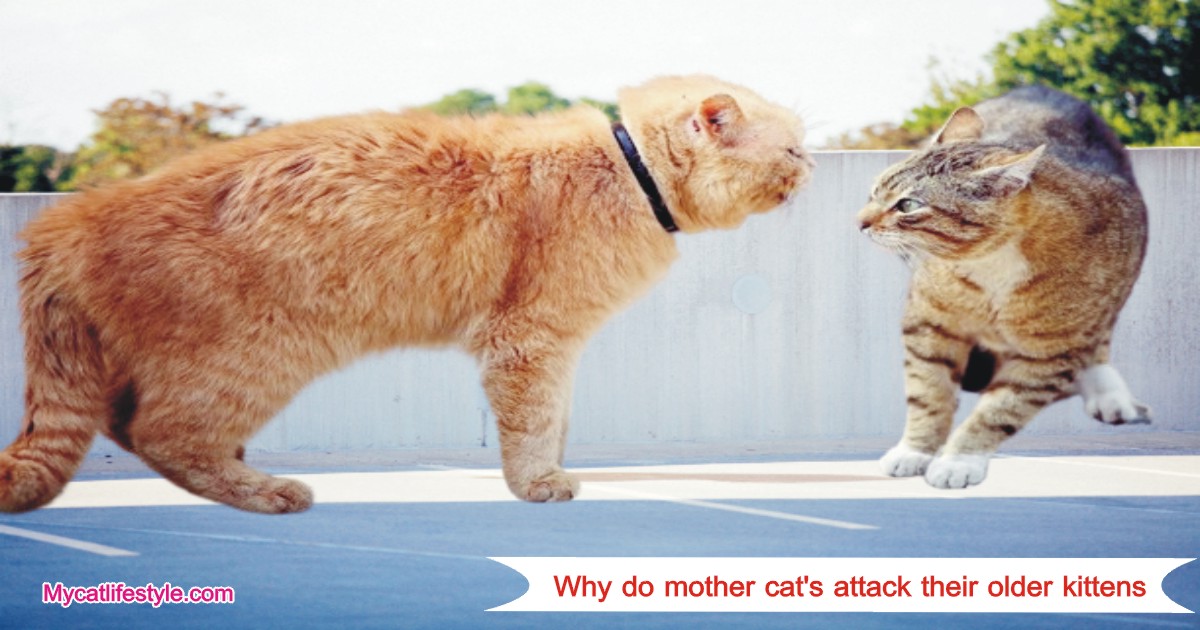
The cutest thing to see is a mom cat feeding and loving her kittens. Cats that don’t have moms may sometimes be put with nursing mothers who can love and care for them as kittens, even in cages. At times, you may see a mother cat rejecting her kittens, which may lead to confusion about the reasons for this behavior. Why Do Cat Moms Hate Their Kittens?
Mother cats do not hate their kittens. They may seem to “hate” them sometimes, but this is just because they teach them independence or protect them. If the mother cat seems distressed, it might be due to stress, sickness, or the kittens are unwell or injured. But she does not despise them; it is only her inherent impulses at work. Another reason a mom cat hates her kittens is when they reach adulthood. After a kitten reaches a certain age, its mother may seem to hate them. Her feelings tell her that the kittens will begin to mature and make their own choices. If you’re concerned about her behavior, take her to the vet to be checked for any health problems.
So now you are aware. But you may be concerned and wish to tackle this problem to keep your kittens safe. In this essay, I have answered all of your questions. Please continue reading to understand more about these solutions and why she acts as she does.

Why Does My Mother Cat Hate Her Kitten?
It might seem baffling at first, but there are several reasons why a mother cat hate her kittens. It’s essential to understand that what might look like hatred is often a natural behavior rooted in the feline instinct.Firstly, stress plays a significant role. Mother cats, especially first-timers, can become overwhelmed by the demands of motherhood. The constant need for feeding, grooming, and protecting her litter can be taxing, and if the mother cat feels stressed or threatened, she might react by distancing herself from her kittens.
Health issues are another critical factor. Postpartum complications, such as mastitis (inflammation of the mammary glands) or low calcium levels can make nursing painful or difficult. In these situations, the mother cat might shun her kittens because the process of feeding them causes discomfort. Furthermore, environmental factors shouldn’t be overlooked. Cats are sensitive to their surroundings. A noisy, crowded, or chaotic environment can heighten the mother cat’s anxiety, leading her to act out against her kittens. This behavior is a protective instinct – in the wild, a stressed mother might abandon or act aggressively towards her litter to avoid attracting predators.
Lastly, there’s the age factor. Older cats or those in poor health might not have the energy or patience to deal with the demands of kittens. In contrast, very young mothers might lack the maternal instincts and experience, leading them to reject their litter.
Understanding these factors is crucial to addressing the issue. It’s not a matter of simple dislike or hatred; it’s a complex interplay of health, environment, and instinct. With this in mind, let’s delve into other aspects that might contribute to this behavior.
Why Does My Cat Hate Her Kittens?
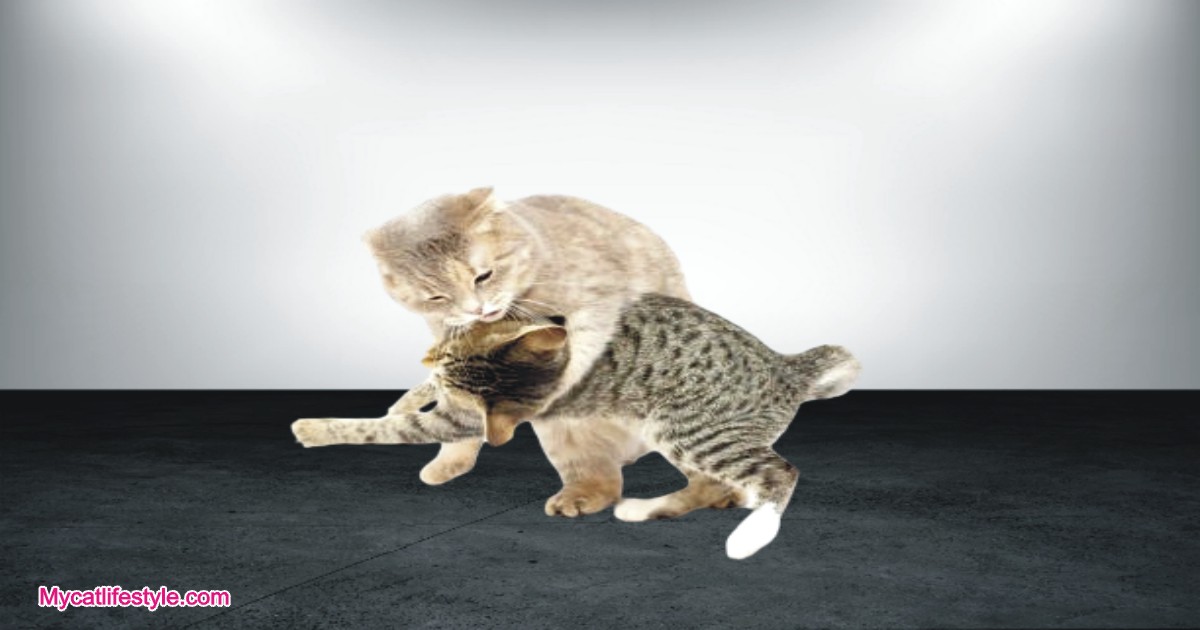
Understanding why a mother cat might seem to hate her kittens involves exploring various factors, from natural instincts to environmental stresses.
Kitten Rejection:
Sometimes, a mother cat may reject one or more of her kittens if they are weak, ill, or have congenital anomalies. This instinctual behavior is more common in nature, where only the strongest survive.
Fatigue:
Motherhood can be exhausting. Constant care and feeding can lead to maternal fatigue, making the mother cat less tolerant and more irritable towards her kittens.
Hormones:
Hormonal changes post-birth can affect a mother cat’s mood and behavior. Fluctuating hormones can lead to temporary aggression or rejection.
Weaning:
As kittens start weaning and eating solid food, the mother cat may push them away to encourage independence. This behavior is often mistaken for hatred but is a normal part of kitten development.
Stress:
A stressed mother cat, due to environmental changes or other disturbances, may display aggressive behavior towards her kittens. Ensuring a calm and stable environment can help mitigate this.
Feels Threatened:
If the mother cat feels threatened by the presence of other animals, humans, or changes in her environment, she might lash out at her kittens in an attempt to protect them.
Prey Drive:
Sometimes, a mother cat’s prey drive can be mistakenly directed at her playful kittens, especially if they make sudden movements that trigger this instinct.
Older Kitten:
As kittens grow older and more independent, the mother cat may start treating them as she would any other cat, establishing boundaries and sometimes displaying aggression.
Teaching:
What appears as hatred might actually be a form of teaching. Mother cats often use physical methods to teach their kittens about the world, which can seem rough but is a normal part of kitten education.
Playing:
Playful aggression is common in cats. A mother cat may play more roughly with her older kittens, which is a part of teaching them vital survival skills.
Do Mother Cats Lose Their Maternal Love Over Time?
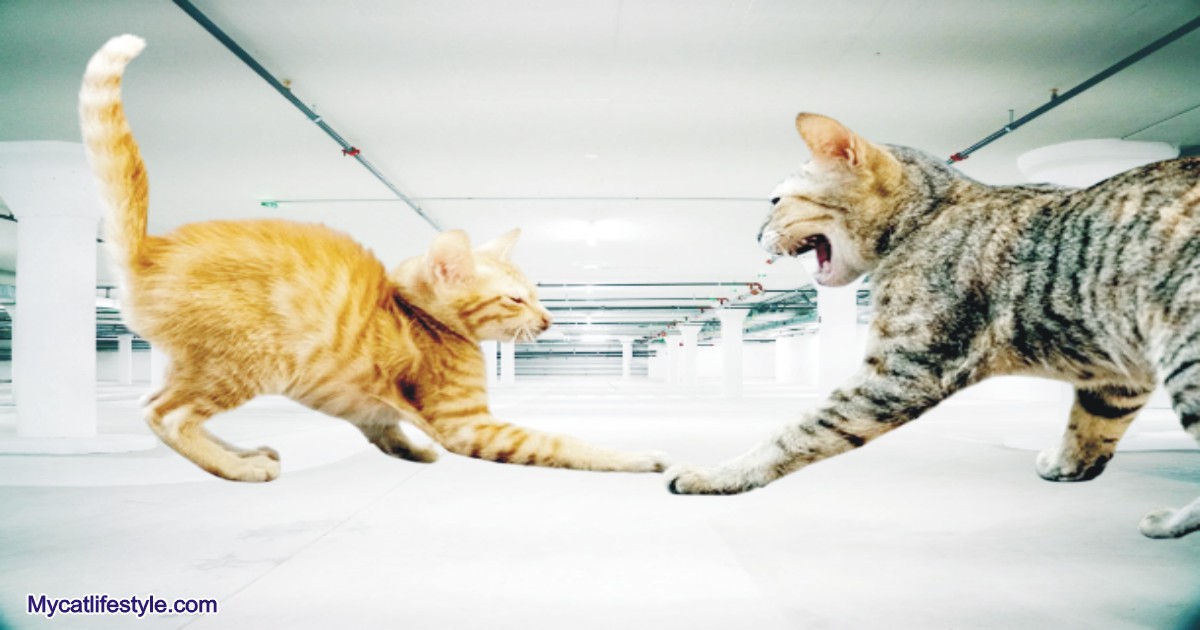
When we talk about a mother cat’s relationship with her kittens, it’s important to consider how this bond evolves over time. The concept of ‘maternal love’ in cats can be quite different from what we observe in humans. For cats, maternal behaviors are largely driven by instinct, which naturally change as the kittens grow.
Initially, a mother cat’s instincts are incredibly strong. She is driven to nurture, protect, and teach her kittens. This phase is crucial for the survival and development of the kittens. However, as the kittens grow and become more independent, the mother’s instinctual need to care for them diminishes.
This shift usually starts to occur as the kittens approach weaning age, around 8 to 10 weeks old. At this stage, the mother cat begins to encourage her kittens’ independence. She may start spending less time with them, stop nursing, and even display behaviors that seem dismissive or aggressive. It’s not that she’s losing her ‘love,’ but rather that her instinctual role is changing. She’s teaching her kittens to be independent, which is a critical part of their development.
Another aspect to consider is the mother’s readiness to return to her non-maternal routines and behaviors. Once the kittens are independent, she may show more interest in her own activities, including hunting, exploring, and interacting with other cats or humans. This shift doesn’t indicate a loss of affection but rather a return to her normal feline behavior. while it may seem like mother cats lose their maternal love over time, it’s more accurate to say that their maternal instincts evolve as their kittens grow. This natural progression ensures that the kittens develop the necessary skills to thrive independently
Why is My Cat Suddenly Aggressive to Her Kittens?
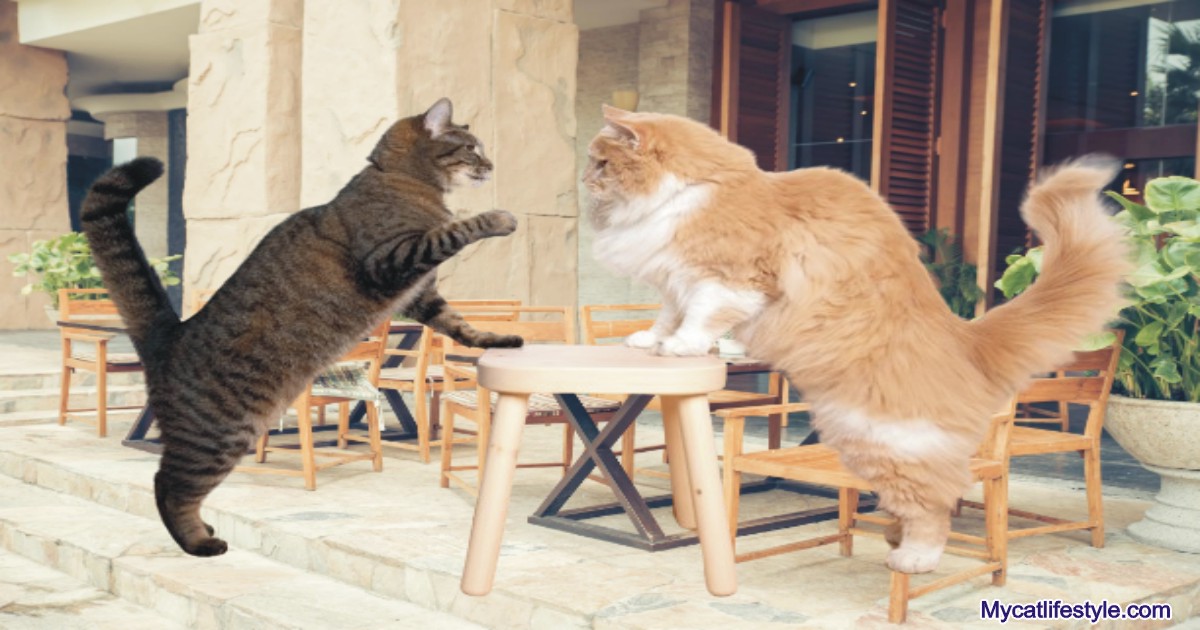
Observing a mother cat suddenly turning aggressive towards her kittens can be distressing, but it’s a behavior that has its roots in natural instincts and environmental factors. One key reason for this aggression is the weaning process. As kittens grow and start eating solid food, the mother cat institutionally begins to push them towards independence. This can sometimes manifest as aggression, which, in the feline world, is a way of teaching the kittens that they need to fend for themselves. It’s not about hostility but about encouraging self-sufficiency.
Hormonal changes in the mother cat can also play a role. After giving birth, her hormones are in a state of flux, which can occasionally lead to irritability or aggression. This is particularly noticeable if the mother cat goes into heat soon after giving birth, a period where her focus shifts from nurturing to mating.Environmental stress is another significant factor. If the mother cat feels that her environment is unsafe or too chaotic, she may become aggressive towards her kittens as a misguided form of protection. In the wild, if a mother cat perceives a threat, she might drive her kittens away to prevent them from attracting predators.
Health issues can’t be ignored either. If the mother cat is in pain or discomfort, perhaps due to a medical condition or lack of adequate nutrition, she might lash out. Pain can make even the most gentle cat irritable and prone to snapping. Lastly, the age and experience of the mother cat play a crucial role. Young or first-time mothers might not fully understand how to deal with their kittens and can react aggressively out of confusion or frustration. Understanding these factors is crucial for addressing any issues of aggression. By ensuring a calm, safe environment, monitoring the mother’s health, and giving her space, many aggressive behaviors can be mitigated. Let’s explore further to see how these dynamics play out in different scenarios.
What Can You Do to Protect Your Kitten from Its Mother?
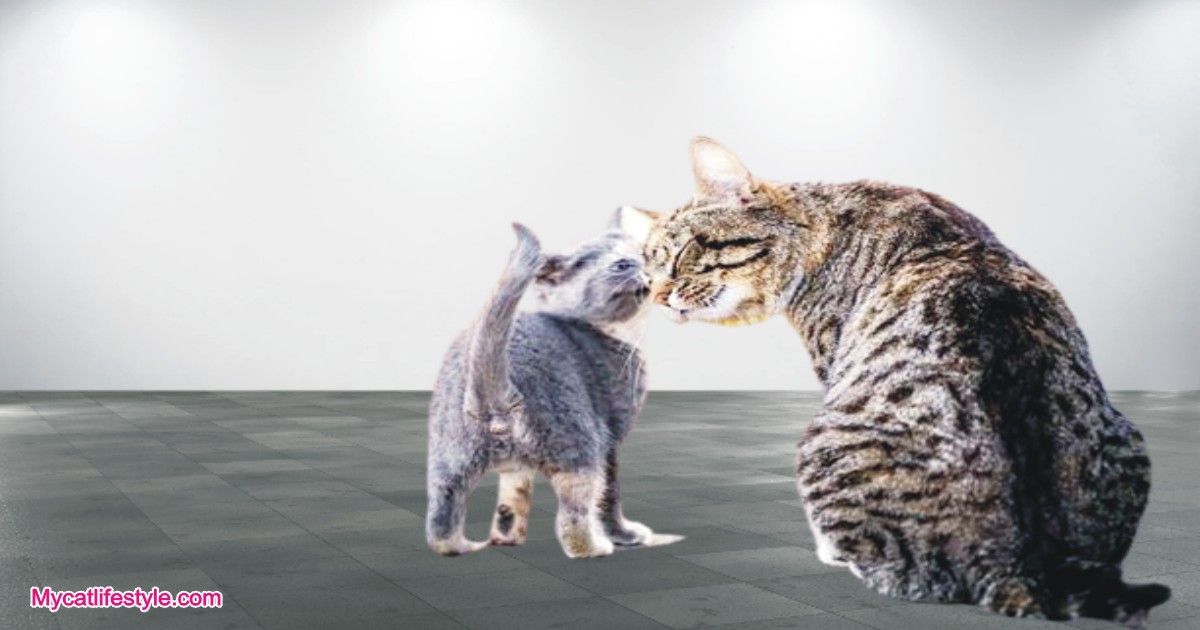
When you notice a mother cat acting aggressively towards her kittens, it’s natural to feel concerned. Your instinct is to protect the kittens, but it’s also important to approach this situation thoughtfully to ensure the well-being of both the mother and her litter. Firstly, provide a safe space for the kittens. If the aggression is mild, a separate area within the same room can work, allowing the mother to see and smell her kittens without direct contact. For more severe cases, a completely different room might be necessary. This separation should be temporary and supervised, as complete isolation can lead to other behavioral issues.
Monitoring the mother’s health is crucial. If her aggression stems from a health issue, addressing that problem can alleviate the behavior. This might involve a visit to the vet to check for any postnatal complications or other health concerns. Reducing environmental stressors can also help. Ensure that the mother cat has a quiet, comfortable space to retreat to when she feels overwhelmed. Limit loud noises, sudden movements, and the presence of strangers or other pets that might be causing her stress.
Engage the kittens in independent activities. As they grow, they need stimulation and exercise. Providing toys, climbing structures, and interactive playtime can help them develop independently and reduce their reliance on their mother. Gradual reintroduction is key once the immediate concerns are addressed. This should be done under close supervision, allowing the mother and kittens to interact in controlled, short sessions. Watch for signs of stress or aggression and separate them if necessary.
Lastly, consider spaying the mother cat. This can reduce the hormonal fluctuations that might contribute to aggressive behavior and is beneficial for her long-term health. By taking these steps, you can create a safer environment for both the kittens and their mother, allowing them to interact more positively as the kittens grow and develop. Let’s continue to explore more aspects of this intriguing feline behavior.
Will a Mother Cat Ever Harm Her Own Kitten?
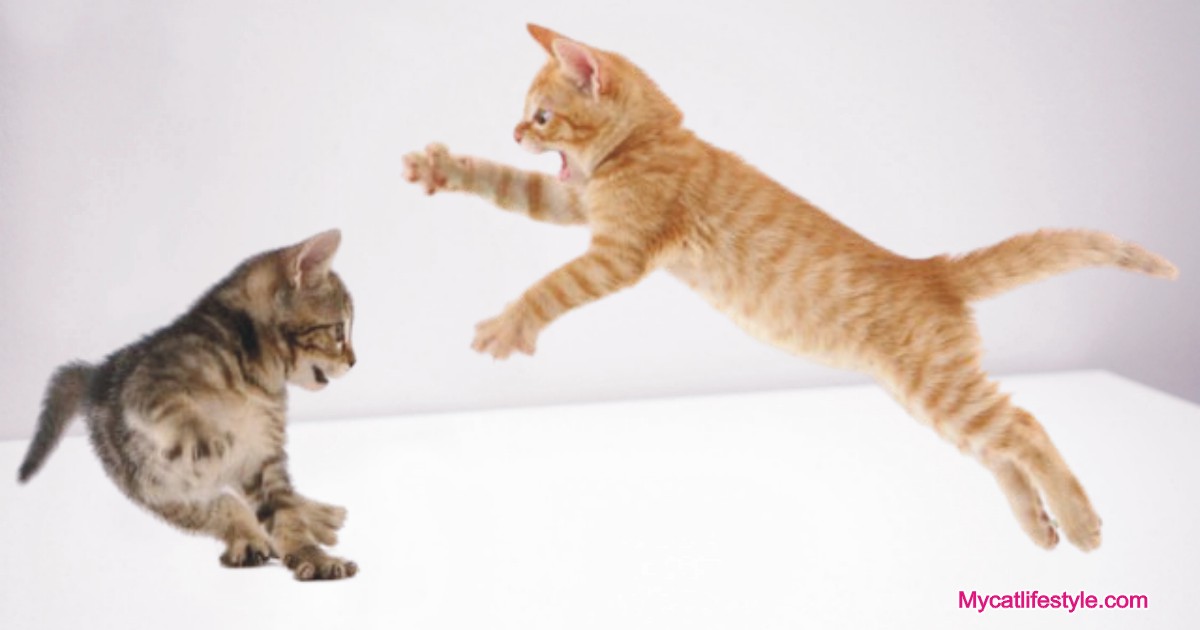
The thought of a mother cat harming her own kitten is troubling, but it’s a question that merits understanding from a biological and behavioral perspective. While it’s relatively rare, there are circumstances where a mother cat might harm or even kill her kitten. One such scenario is if the kitten is born with a congenital defect or illness. In the wild, a mother cat might instinctively reject or harm a sickly kitten to focus her energy on the healthier ones who have a better chance of survival. This behavior is driven by a survival instinct, ensuring the overall survival of her litter.
Stress and environmental factors can also contribute to this extreme behavior. If a mother cat is under severe stress or feels that her environment is dangerously unstable, she might harm her kitten in a misguided attempt to protect it from perceived threats. This is more common in situations where the mother cat feels trapped or unable to escape a stressful situation.Additionally, first-time mothers or very young mothers might not fully understand how to care for their kittens and can accidentally harm them. This lack of experience can lead to rough handling or neglect, especially if the mother cat is overwhelmed.
Hormonal imbalances or postpartum health issues can also play a role. If the mother cat is experiencing pain or hormonal fluctuations that affect her behavior, she might unintentionally harm her kittens.It’s important to note that these behaviors are not the norm and usually indicate an underlying issue, whether it’s environmental stress, health problems, or lack of experience. In domestic situations, providing a safe, quiet, and comfortable environment for the mother cat and her kittens can significantly reduce the risk of such occurrences. Understanding these potential risks helps in creating a nurturing environment for both the mother and her kittens, ensuring their safety and well-being. Let’s delve deeper into how we can foster a harmonious relationship between mother cats and their kittens.
Is it True That Some Mother Cats Have Eaten Their Own Kitten?
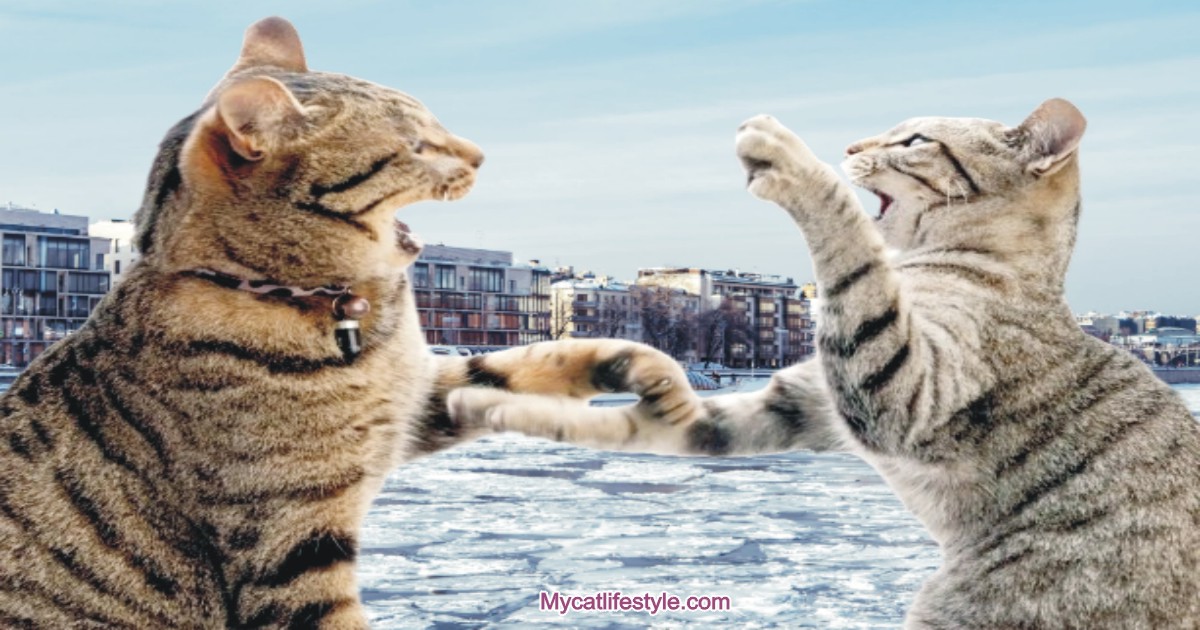
This topic can be quite unsettling, but it’s important to address it with a factual and sensitive approach. Yes, there are rare instances where a mother cat might eat her own kitten. This behavior, known as filial cannibalism, is complex and influenced by several factors.Firstly, it’s vital to understand that this behavior is extremely rare in domestic cats. When it does occur, it’s often due to extreme stress or confusion. For example, a highly stressed mother cat might not recognize her kitten as her own, leading to this tragic outcome.
Nutritional deficiencies can also play a role. A mother cat who is severely malnourished might resort to eating her kitten to replenish essential nutrients. This is more likely to happen in feral cats or in situations where the mother cat is not receiving adequate care.In some cases, if a kitten is stillborn or dies shortly after birth, the mother cat might eat the deceased kitten. This behavior could be instinctual, stemming from a need to keep the nesting area clean and free from predators. In the wild, the presence of a deceased kitten could attract predators, putting the rest of the litter at risk.
Another factor is the mother’s health, particularly her mental state. A cat suffering from a health issue that affects her cognitive functions might display abnormal behaviors, including harming or eating her kittens.It’s crucial to emphasize that these behaviors are not a normal part of feline behavior and usually indicate a serious issue with the health or environment of the cat. For domestic cats, providing a stress-free environment, proper nutrition, and regular veterinary care can prevent such extreme behaviors. Understanding this rare phenomenon requires a compassionate and informed perspective, recognizing the importance of proper care and environment in preventing such occurrences. Let’s continue exploring the fascinating and complex world of feline behavior and care.
How to Care for Newborn Kittens and a Mother Cat
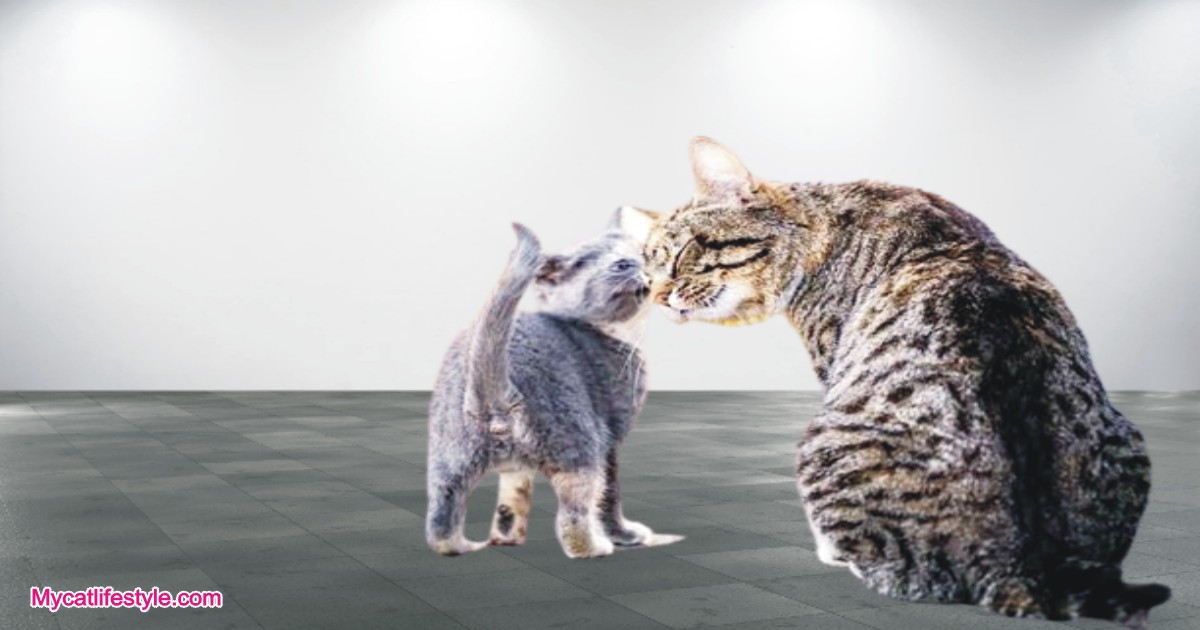
Caring for a mother cat and her newborn kittens is a rewarding yet delicate task. It requires a balance of attention, providing a comfortable environment, and ensuring their health and well-being. Let’s break down the key steps:
1. Comfortable Environment
Creating a safe and quiet space is crucial for the well-being of the mother cat and her kittens. Choose a low-traffic area in your home, away from the hustle and bustle of daily activities. The space should be secure, so the mother feels safe and is less likely to move her kittens. Ensure it’s free from hazards and comfortable, with easy access to food, water, and a litter box for the mother.
2. Give Them Attention
While it’s important to give the mother cat and her kittens some privacy, regular, gentle attention is also vital. This helps in socializing the kittens and monitoring their development. Interact with them softly and calmly, and watch how the mother cat responds. If she seems relaxed with your presence, you can gradually increase your interaction.
3. Keep Them Warm and Cozy
Newborn kittens cannot regulate their body temperature, so keeping them warm is essential. A cozy nesting box with soft, warm bedding works well. Be careful with heating pads as they can get too hot; if you use one, cover it with a blanket and only heat one corner of the nesting area, so the kittens can move away if they get too warm.
4. Get Them Checked Out
It’s important to have both the mother and her kittens checked by a veterinarian soon after birth. The vet can ensure that the mother is recovering properly from the birth process and check the kittens for any health issues. They can also guide you on proper feeding, care, and vaccinations.
Caring for a mother cat and her newborn kittens lies in providing a peaceful environment, gentle interaction, ensuring they are warm and comfortable, and seeking regular veterinary care. These steps will help ensure the health and happiness of the feline family and set the kittens on a path to a healthy, socialized life.
Do Stray Mother Cats Hate Their Kittens After They Grow Up?
The behavior of stray mother cats towards their grown kittens can differ from that of domestic cats due to their survival-driven lifestyle. The term ‘hate’ is not accurate in this context; it’s more about survival instincts and natural behaviors.In the wild, once kittens are old enough to fend for themselves (usually around 4-6 months old), the mother cat will naturally encourage their independence. This might appear as though she’s pushing them away, but it’s a normal part of feline development. It’s essential for kittens to learn to survive independently, especially in a stray or feral environment.
Stray mother cats may also go into heat and have another litter soon after their previous kittens have grown, shifting their focus to the new litter. This shift in focus is not about disliking the older kittens but about the demands of caring for a new litter and the continuous cycle of survival in a stray environment.Understanding the behavior of stray cats through the lens of survival and natural instincts offers a clearer, more empathetic perspective on their actions and interactions with their offspring.
How Can You Train Your Mother Cat to Stop Being Aggressive?
Training a mother cat to reduce aggression towards her kittens involves patience, understanding, and a consistent approach. Here are some steps to help modify this behavior:
- Identify the Cause
- Create a Calm Environment:
- Gradual Desensitization
- Positive Reinforcement
- Provide Separate Spaces:
- Regular Play and Exercise:
- Consult a Veterinarian or Behaviorist:
Can Kittens Stay with Their Mother Forever?
The idea of kittens staying with their mother forever paints a charming picture, but it’s important to consider the practical and behavioral aspects of such a decision. Naturally, as kittens grow, they undergo a weaning process, not just from their mother’s milk but also from her constant care. This process is crucial for their development into independent and well-adjusted adult cats.
In a domestic setting, while there’s no strict rule preventing kittens from staying with their mother, the dynamics of their relationship will change over time. As the kittens mature, the mother cat will instinctively encourage their independence. This shift is a natural part of feline behavior, designed to prepare them for survival and adulthood. The mother may become less tolerant of her grown offspring, especially if she goes into heat and is ready to have another litter.Space and resources also play a critical role. Ensuring that each cat has enough space, along with access to individual food bowls, litter boxes, and sleeping areas, is essential to prevent competition and stress. Overcrowding can lead to behavioral issues like aggression or territorial disputes.
Socialization is another factor to consider. Kittens benefit from interacting with a variety of humans and, if possible, other pets. This exposure helps them develop well-rounded social skills. Staying solely with their mother might limit these valuable experiences.Finally, the importance of spaying and neutering cannot be overstated. If you plan to keep the kittens with their mother, these procedures are vital to prevent unwanted litters and reduce potential health risks and behavioral issues related to mating instincts.
FAQs:
Why do mamma cats hate their kittens?
It’s a misconception that mother cats hate their kittens. As kittens grow older, mothers may become less nurturing as a way of encouraging independence. This distancing is a natural part of the kitten’s development process. If a mother cat shows aggression, it might be due to stress or health issues rather than hatred.
Why is my cat rejecting her kittens?
Rejection can occur for various reasons. Health issues in the mother or the kittens, environmental stress, or a lack of maternal instincts, especially in first-time mothers, are common causes. Sometimes, if a kitten is unwell, the mother cat instinctively knows it may not survive and may focus on the healthier kittens.
Why does my female cat hate kittens?
If a female cat shows aggression towards kittens, it’s often due to territorial instincts rather than hatred. Cats who aren’t the mother of the kittens and haven’t been socialized with young kittens may view them as a threat to their space and resources.
Why is my cat hissing at her kittens?
Mother cats may hiss at their kittens as a form of discipline or to set boundaries, especially as the kittens become more active. It’s also a sign of stress or discomfort in the mother. Hissing is a normal part of cat communication.
Can kittens stay with their mother forever?
While kittens can stay with their mother indefinitely, it’s important for their social development to interact with other cats and environments. Kittens typically start to gain independence at around 8-12 weeks of age.
Do mother cats get tired of their kittens?
Mother cats may start to distance themselves as the kittens grow older, which is a natural progression towards encouraging their independence rather than a sign of being tired of them.
Do mother cats have favorite kittens?
There’s anecdotal evidence that mother cats may show preference for certain kittens, perhaps due to their temperament or health. However, this is more about maternal instincts towards the viability of the litter rather than favoritism as humans perceive it.
Will my cat hurt a new kitten?
While initial interactions might include hissing or swatting, most adult cats won’t seriously harm a new kitten. Supervised, gradual introductions are key to ensuring safe interactions.
How long does maternal aggression last?
Maternal aggression, typically seen when a mother cat protects her kittens, usually subsides as the kittens become more independent. This can vary but often decreases significantly after the kittens are weaned.
Conclusion
Parenting in the animal kingdom presents unique challenges. In the case of mother cats, their seemingly aggressive behavior towards their kittens often stems from a mix of hormonal shifts, health conditions, the development stage of the kittens, instinctual protective tendencies, and the complexities of their social environment.
Hormonal changes during and post-pregnancy significantly affect a mother cat’s mood and actions. For example, if she experienced stress or physical discomfort during childbirth, perhaps due to an unsafe environment, this could lead to post-birth trauma. Such stress might make it difficult for her to relax and lie down comfortably to nurse her kittens.
It’s essential to handle a mother cat with care and understanding. If she seems agitated, it’s best to give her space and time to calm down on her own. Forcing interactions, especially when it comes to feeding her kittens, can exacerbate her stress, potentially leading to unintended harm to her litter. Allowing her to approach her kittens on her own terms helps maintain a peaceful and safe environment for both the mother and her young.

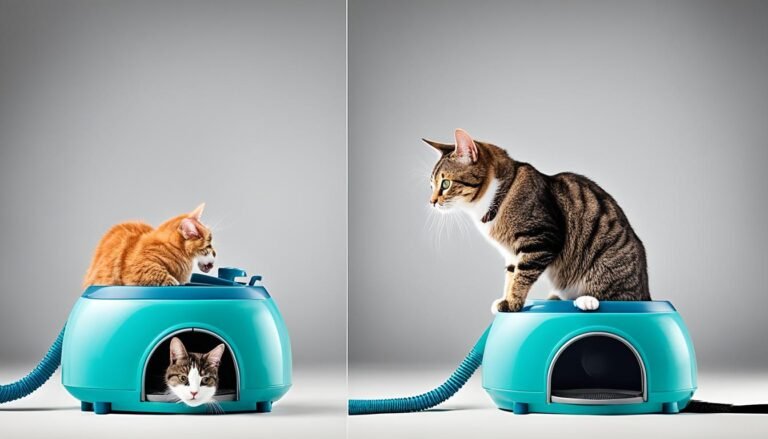
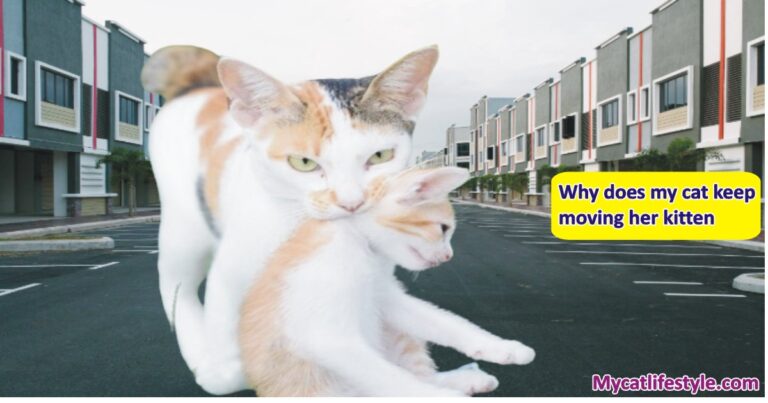
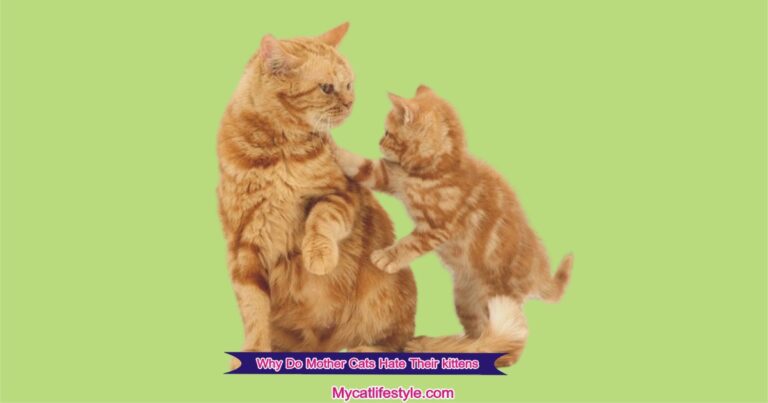
![Can I Spray Perfume on My Cat? [What Cat Owners Need To Know]](https://mycatlifestyle.com/wp-content/uploads/2023/10/Mycat-lifestyle.com-4-768x403.png)
